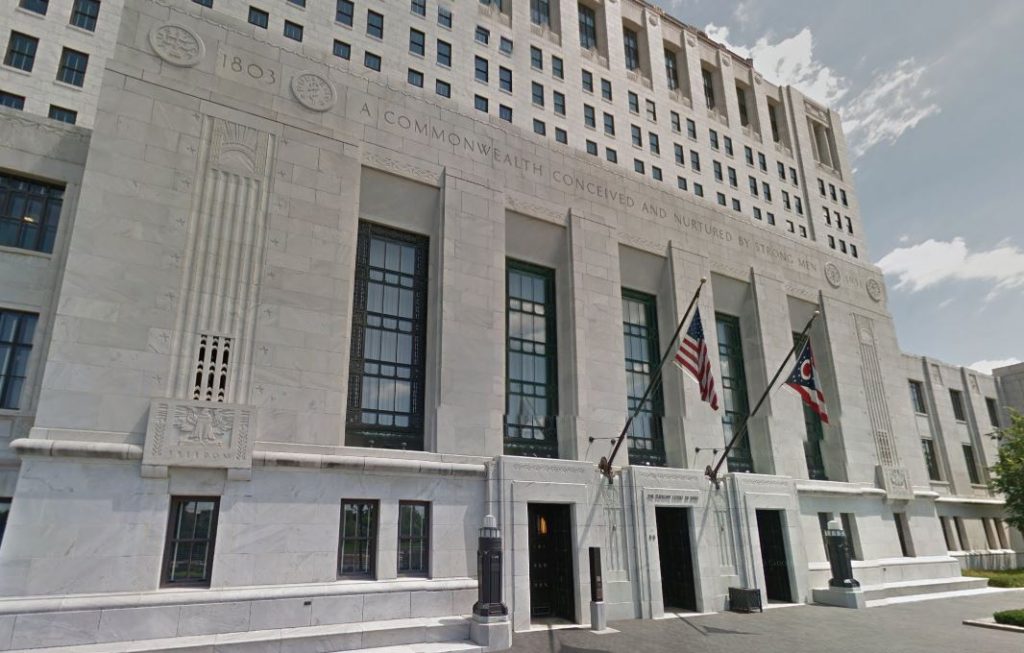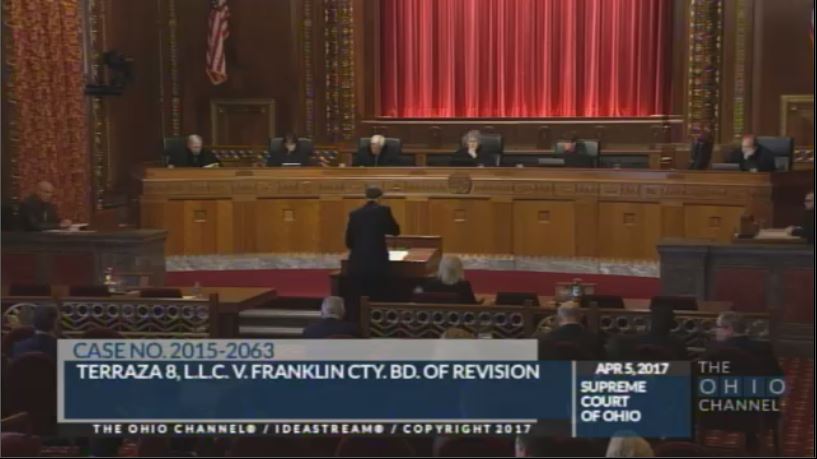
Sleggs, Danzinger & Gill wins Ohio Supreme Court case that brings back fee simple standard to Ohio

The Thomas J. Moyer Ohio Judicial Center, home of the Ohio Supreme Court.
In 2006, a case with very bad facts made some very bad law. The “Manlaw” case involved the valuation for tax purposes of two buildings encumbered by older, long term leases that were subject to a recent arm’s-length sale. Despite hearing arguments that appraisal and other evidence should be considered in determining value even for properties subject to recent, arm’s-length sales, the Ohio Supreme Court held that “the law requires using the sale price for tax purposes.” In other words, and as we have been telling our clients for the last twelve years, “a sale is a sale” for tax purposes despite our strong belief that blind reliance on a purchase price to determine value is too simplistic and naïve. However, twelve years after Manlaw made Ohio a “leased fee” state for real property tax assessment in a sale case, the Ohio Supreme Court has issued a favorable decision that gets Ohio out from under the absurd results that were the progeny of the Manlaw decision. The case is Terrazza 8 (Case No. 2015-2063 Terraza 8, L.L.C. v. Franklin Cty. Bd. of Revision). Now, Ohio taxpayers can introduce appraisal and other evidence to show that a sale price does not reflect the true value of underlying real estate. Importantly, the valuation standard in Ohio in sale cases is no longer leased fee value, but rather unencumbered fee simple value.
The Terrazza 8 case involved a health club (represented by Sleggs, Danzinger & Gill) assessed by the County at a value of $4,850,000 that sold on a leased fee basis for over $14,000,000. The lease in effect at the time of the sale had been negotiated prior to the great recession and reflected a rental rate of over $20 per square foot. In opposing the increase to the sale price, we introduced into evidence an appraisal which showed that the post-recession market rent for the property was less than the $20 per square foot rent in the pre-recession lease. The appraisal showed that the unencumbered fee simple value of the real estate was $7,000,000, not the $14,000,000 espoused by the Board of Education and County. In a unanimous decision, the Ohio Supreme Court held that it was error for the Ohio Board of Tax Appeals and local Board of Revision to ignore the appraisal evidence of the property owner showing that the sale did not reflect the unencumbered fee simple value of the real estate. The Court remanded the case to the Board of Tax Appeals to consider the appraisal evidence submitted on the issue of the unencumbered fee simple value of the real estate.
Thanks to the Terrazza 8 decision, property owners now have the right to challenge the increased tax valuation resulting from a sale of property. Please feel free to contact us to discuss the case and its implications in greater detail.
To view the oral argument before The Ohio Supreme Court click below:
